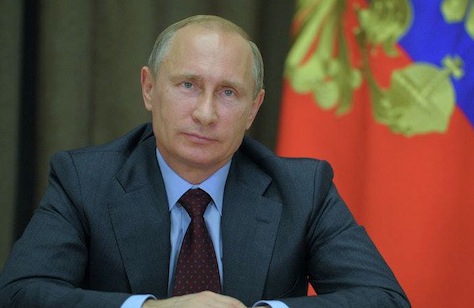
Certainly, today’s sad news from Newtown, Connecticut — the site of a gun massacre that left, so far, 18 children and nine adults dead, will once again ignite a debate over the proper role of gun laws in the United States. 
The reality is that, despite the efforts of officials such as New York mayor Michael Bloomberg (pictured above) in favor of stricter gun control, after the horrific headlines fade, Newtown will join a growing pile of similar incidents — Columbine in 1999, Virginia Tech in 2007, Aurora just earlier this summer — each one more numbing than the last, with no appreciable change to U.S. federal policy on firearm control. The last major effort was the federal assault weapons ban prohibiting certain kinds of semi-automatic weapons, in effect from 1994 to 2004. The ban hasn’t been subsequently renewed, not even in 2009 and 2010 when the relatively pro-gun control Democratic Party controlled Congress and the White House.
But the fact remains that the United States has one of the world’s highest firearm-related death rates in the world at 9 persons per 100,000 annually, which puts it in company with South Africa, the Philippines and Mexico. The United Kingdom’s rate, by contrast, is 0.22. That, Americans should agree, is a problem, although Americans remain split over gun control laws — even after the Aurora shooting, 50% of Americans said in an August CNN poll that they oppose significantly more restrictions on gun ownership.
The Second Amendment, part of the Bill of Rights ratified in 1791, is a one-sentence guarantee to the right to bear arms:
A well regulated militia being necessary to the security of a free state, the right of the people to keep and bear arms shall not be infringed.
The amendment is informed by the precedent of the English Bill of Rights of 1689 that protected the right of Protestants against disarmament by the English monarch (at the time, the Catholic James II).
Since that time, the American devotion to the right to bear arms has become a peculiarly American sensibility, especially since the 1980s saw a rise in pro-gun activism among the American right and especially within the Republican Party — the National Rifle Association is now one of the most powerful interest groups in U.S. politics (as recently as 1969, the NRA was so relatively weak that Republican U.S president Richard Nixon disavowed an ‘honorary life membership’).
In recent years, the U.S. Supreme Court has strengthened Second Amendment rights. In 2008, the Supreme Court in its landmark District of Columbia v. Heller that the Second Amendment extends to the right to possess firearms for self-defense within the home, and in 2010, the Supreme Court ruled in McDonald v. Chicago that the Second Amendment is ‘incorporated’ by the 14th Amendment to extend not only federally but within the individual states.
Despite the efforts of officials like Bloomberg, who have argued that, at minimum, the federal government should tighten up and enforce loopholes in existing gun laws, just today, Michigan governor Rick Snyder was set to sign into law a bill that would allow concealed weapons in gun-free zones.
Indeed, most pro-gun advocates argue that concealed-carry laws — allowing anyone to carry concealed weapons — provide disincentives to potential gunmen. Such state-level concealed-carry laws have become increasingly popular since the 1990s, and the vast majority of U.S. states now feature some form of concealed-carry permit law. Pro-gun advocates also argue that free-gun zone laws that designate schools, hospitals and other areas as firearm-free have inadvertently made those areas ever more tantalizing targets for would-be assailants.
But certainly there are lessons from gun policy in countries outside the United States that can inform a reasoned statistics-based policy debate in the United States, right? Maybe not.
What’s most astonishing is that throughout the world, even among the closest U.S. allies, gun control remains relatively uncontroversial. That makes the example of other countries fairly inapposite.
The general trend seems to be that in countries with relatively stricter gun laws, gun-related homicides are relatively lower, but pro-gun advocates note that there are essentially too many other cultural and political factors about the United States and crime in the United States to draw a straightforward line between the two. As Ezra Klein noted earlier this year, the United States –and the U.S. south where pro-gun sentiment runs strong — is generally a more violent place than much of the rest of the developed world, generally (with or without guns).
The other trend worth noting is that many countries have adopted stricter gun laws in the wake of a horrific shooting spree or gun violence incident, but despite a worrying proliferation of such mass shootings in the United States, such incidents have failed to dent a political consensus against major gun control reforms.
In the United Kingdom, the closest thing to a ‘pro-gun’ position is the silly House of Lords showdown with Tony Blair’s government in the early 2000s over the 2004 ban on hunting with dogs — the hopeless cause of a fox-hunting aristocracy that was more about farce than force. Otherwise, the United Kingdom has some of the world’s most rigorous anti-gun laws — if you want to own a firearm in the United Kingdom, you need to be prepared for a lengthy and bureaucratic process during which police determine whether you’re fit to own a weapon, and once you’ve obtained a permit, it can be easily revoked by the police. Continue reading What can the internal gun politics of other countries teach the United States? →
![]()
![]()


